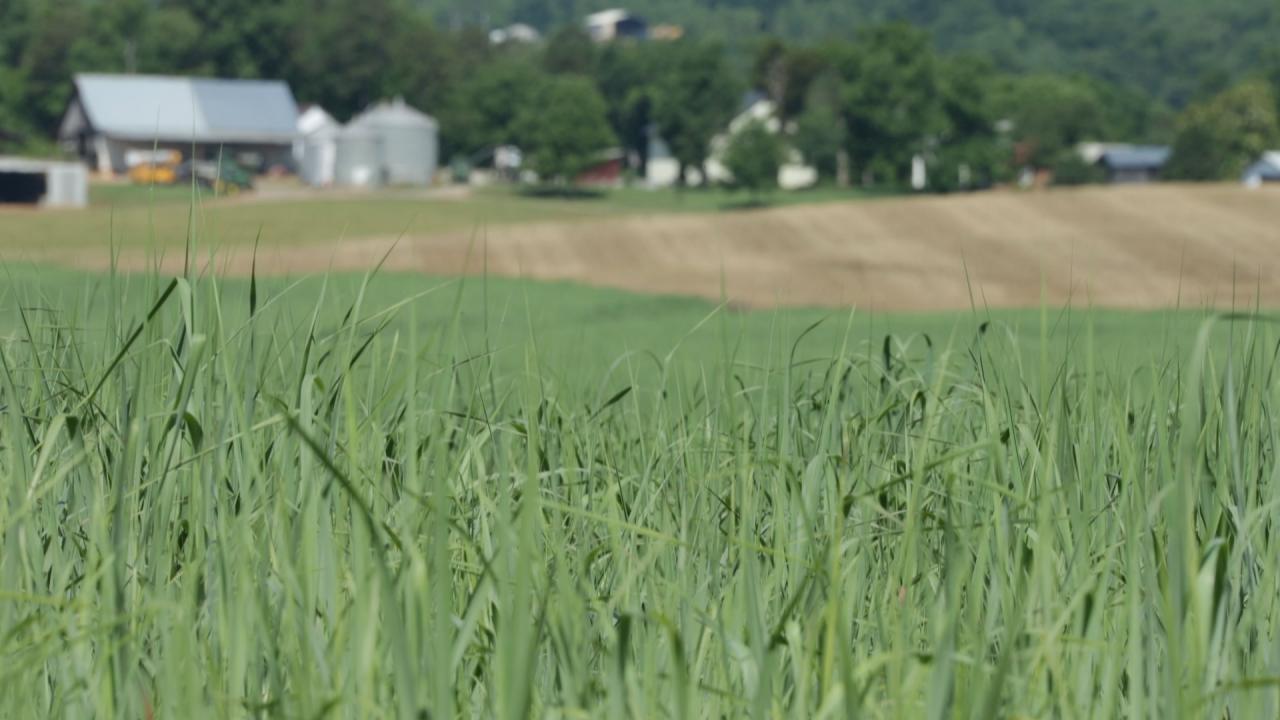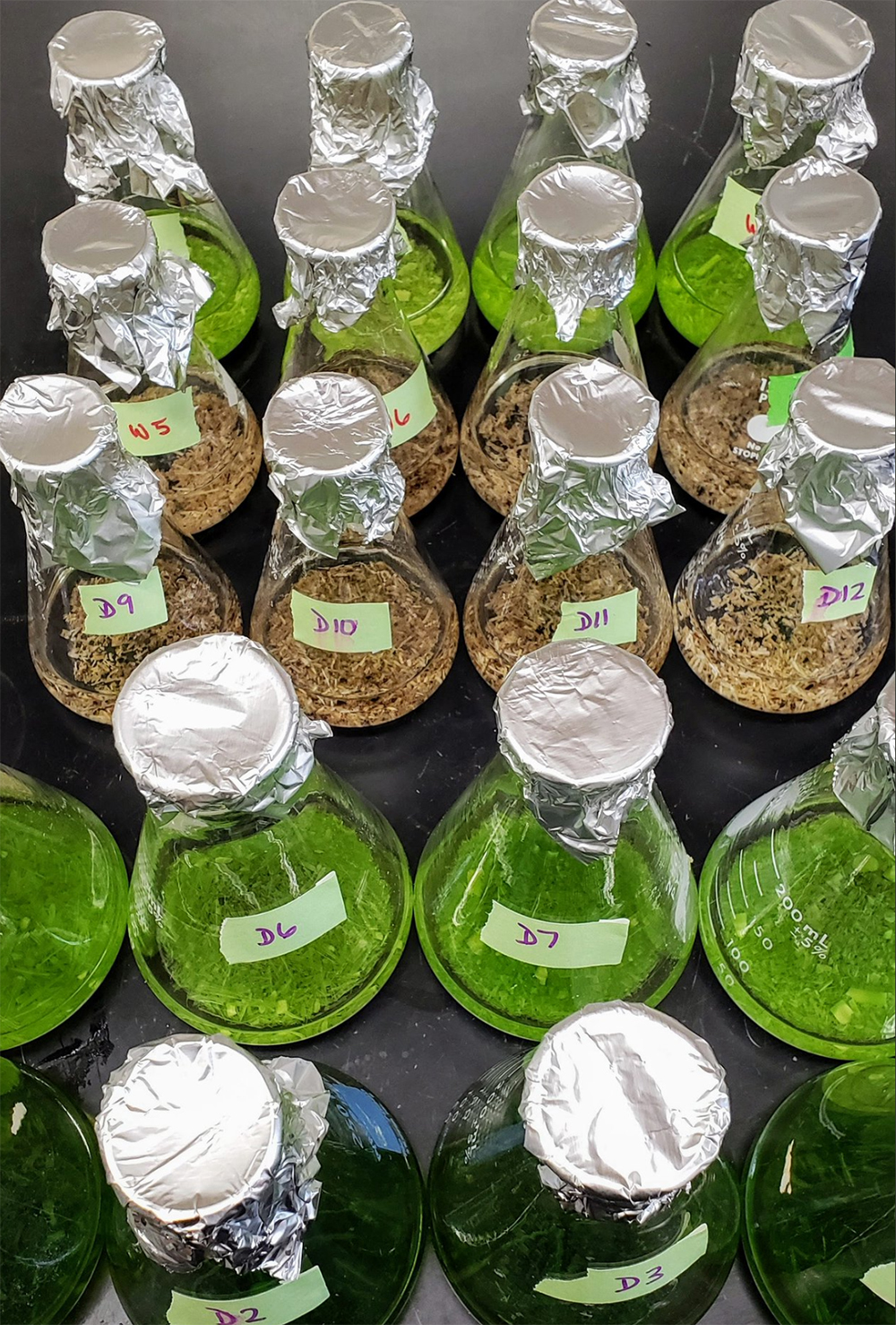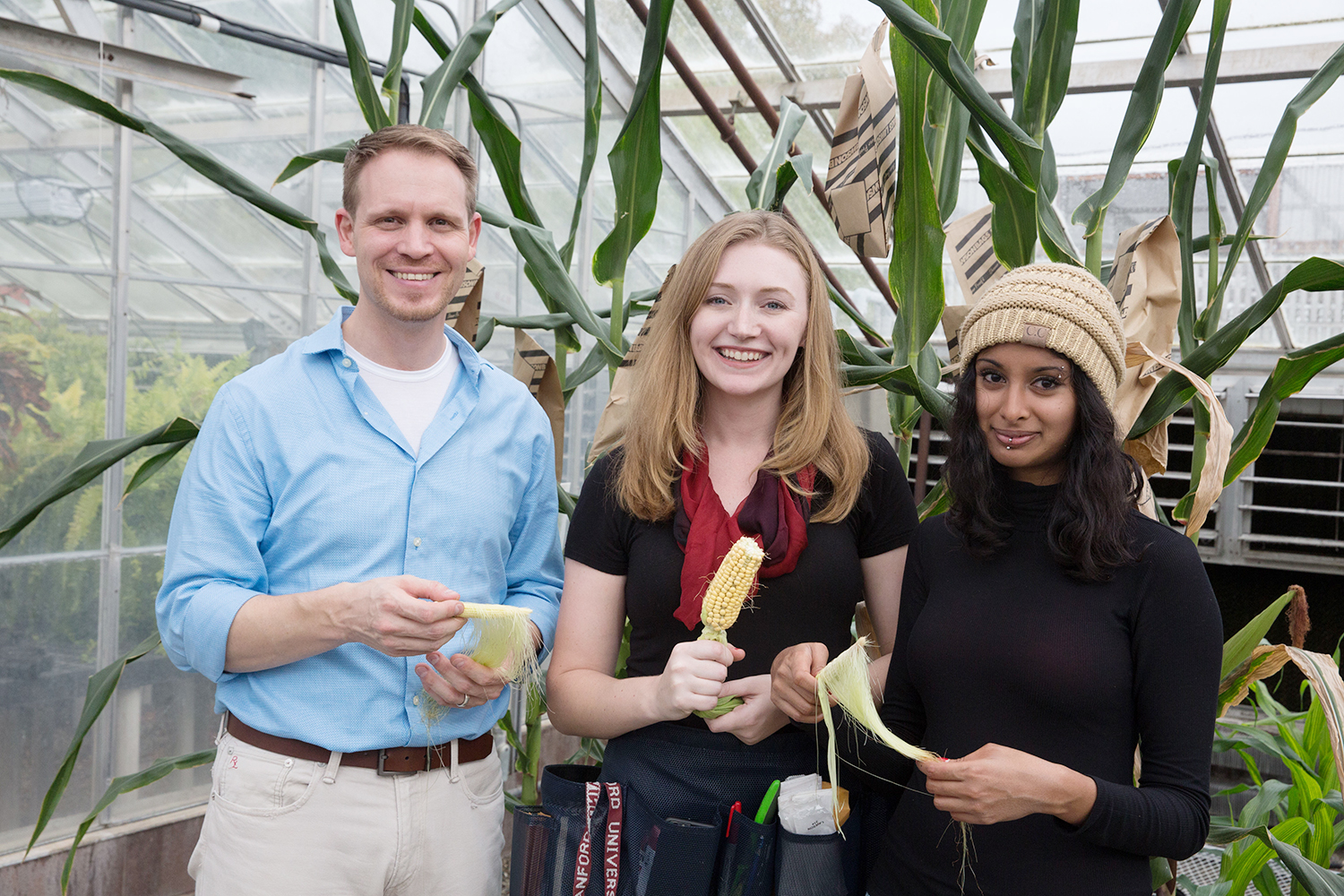
DOE Early Career Program Funds Philipp Zerbe’s Biofuel Research
Quick Summary
- New funding from the DOE will help Philipp Zerbe explore and define the terpene network of switchgrass
- Switchgrass can grow in arid lands, meaning it won't compete with food production for land
- The funding will help develop tools and create new training opportunities for student researchers
Arid lands—with cracked soil and oppressive heat—aren’t usually places that inspire the potential for growth. But Assistant Professor Philipp Zerbe, Department of Plant Biology, sees an opportunity in these harsh lands: they’re prospective beds for growing biofuel crops of the future.
“Switchgrass is a Department of Energy flagship bioenergy crop,” said Zerbe. “It has a high net energy efficiency and is drought-tolerant, offering the possibility to grow it in areas not suitable for maize or rice and some of our other major food crops. It may actually allow us to grow biofuel crops without competing with food production.”
Funded by the DOE’s Early Career Research Program, Zerbe and his colleagues will study the contribution of small molecules to the environmental stress tolerance of switchgrass, with hopes of developing new avenues to generate crops that better withstand stress and produce biofuel more efficiently.
“Our idea is to bring together our two main interests: crop stress resilience and terpene metabolism,” said Zerbe.

Feeding the Future
Learn more about climate resistant crop research at the College of Biological Sciences
A role in defense; a role in fuel
To cope with environmental challenges, many major crops employ a suite of chemicals called metabolites. The Zerbe Lab specializes in studying a specific class of metabolite called terpenes, which play roles in everything from pollinator attraction to defense against insect pests and microbial diseases.
“Terpenes are omnipresent in our daily lives, from the sap of a pine tree to the mint flavor of our toothpaste to the fragrance in your perfume, all contain terpenes,” said Zerbe. “In addition to their bioactivities, terpenes are also hydrocarbon-based chemicals, which means they burn very well.”
This is why dead groves of pine trees are highly flammable.

From his previous work with maize and pine trees, Zerbe knew the importance of terpenes in plant defense. But defining the production and individual role of each terpene in switchgrass poses a unique challenge.
“At the genomic level, switchgrass is incredibly complex,” Zerbe said. “The plant has a large and complex genome, which makes the study of gene functions even more complicated.”
The terpene network of switchgrass is more than twice the size of those found in any other crop. As part of the DOE project, Zerbe and colleagues will develop tools to help gain a detailed understanding of the mechanisms controlling this network.
A project years in the making
Zerbe’s biofuel research harkens back to his postdoctoral work at the University of British Columbia. There, he utilized functional genomics techniques to define the pathways plants used to produce metabolites of medicinal interest, with the goal of producing plant-derived therapeutics.
When he came to UC Davis in 2014, Zerbe applied those same techniques to bioenergy crops. He started new projects to define the defensive metabolite networks of food crops, like maize and foxtail millet, and bioenergy crops, such as switchgrass. The goal was to generate insights into these crops’ terpene diversity and uncover how each terpene helped the crop defend against environmental pressures.
“We were fortunate to secure a grant through the DOE Joint Genome Institute Community Science Program shortly after starting the lab, which allowed us to synthesize all the terpene-metabolic genes we had identified in the switchgrass genome,” Zerbe said. “This has been crucial for us and helped to show that switchgrass makes a unique arsenal of terpenes, several of which are activated when the plant is stressed.”
According to Zerbe, this work was instrumental in helping the team apply for larger-scale funding from the DOE.

New tech and student opportunities
With the new funding, Zerbe and his team will attempt to define which environmental stressors lead to specific terpene production. After that, they’ll tackle the prospect of engineering terpenes for enhanced plant resilience and biofuel production.
For the first part, Zerbe will partner with Dr. Trent Northen at the Lawrence Berkeley National Laboratory and the Joint Genome Institute to begin large-scale metabolite profiling of switchgrass. Together, they will employ a 3D-printed growth chamber that allows for solution input and output.
“It will allow us to feed terpenes to the plant root and examine their impact on the plant as well as root-associated microbes,” Zerbe said. “We also can apply certain stresses, like high salt or heat, and test the responses of the plant all in a small controlled environment.”
This will allow Zerbe to conduct precise measurements at the whole plant level while still in a foundational phase of the project.
On the engineering side, Zerbe will partner with Professor Savithramma Dinesh-Kumar, Department of Plant Biology. They’ll work to develop new CRISPR tools that will allow for modification of plants with complex genomes, like that of switchgrass.
“We want to harness this knowledge and modify the genes for terpene production, both for resistance and hopefully to make terpenes with established uses as biodiesel and jet fuels outright,” Zerbe said.
Zerbe said the funding will also help him provide training for students in his lab.
“It will provide a lot of collaborative training opportunities across different technologies, from functional genomics to enzyme biochemistry to CRISPR/Cas9-based plant engineering to potentially field studies,” he said.
